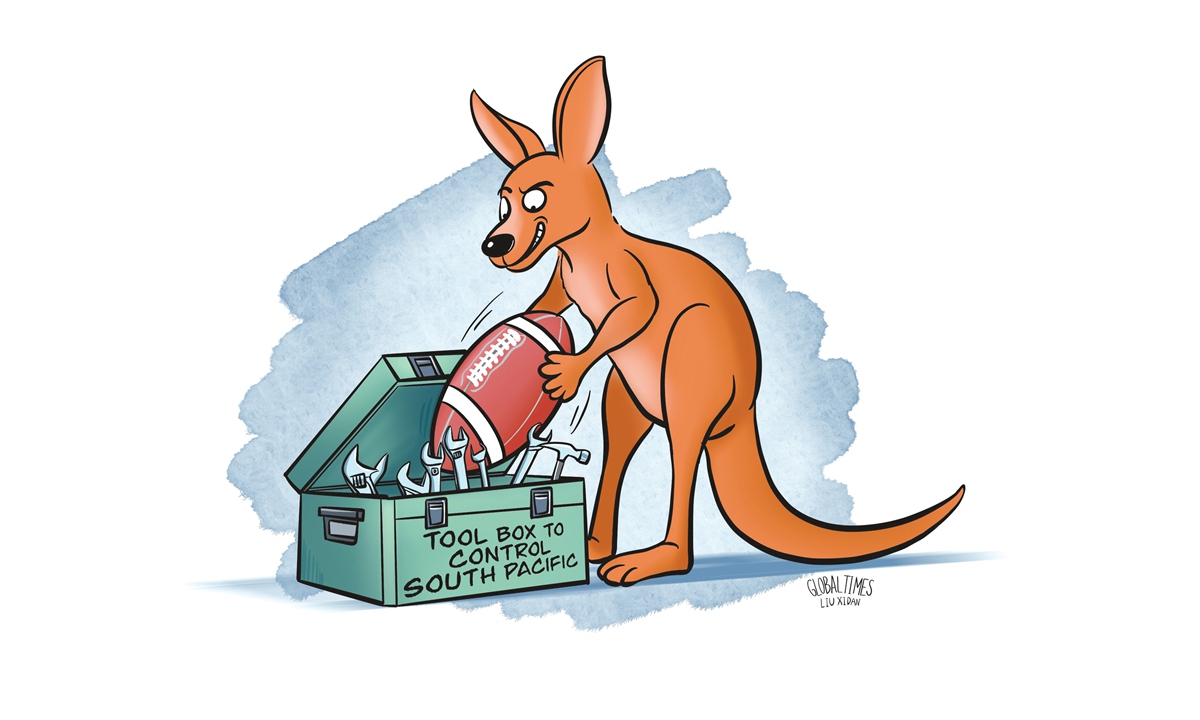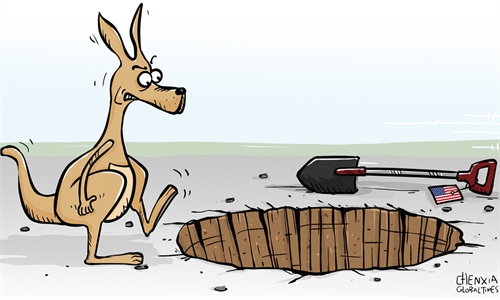Using rugby to sabotage China-PNG cooperation? See how ‘sincerely’ Australia treats PICs

Illustration: Liu Xidan/GT
How sincere is Australia when developing relations with countries of the South Pacific islands, a region Canberra always views as its own backyard and considers to be under its sphere of influence? The answer is that Australia's offers are never without conditions. In its views, it is all about what is in its tool box to control those island countries.
According to a report from the Australian Broadcasting Corporation (ABC) on Monday, Canberra is considering providing up to $600 million in support for Papua New Guinea's hopes of fielding a team in Australia's National Rugby League (NRL) competition, but the condition is that PNG shouldn't sign a security deal with China.
On one hand, it is about rugby, on the other, it is about China's perceived influence. If Australia has truly linked these two unrelated matters, that would be laughable.
Even the Australian Strategic Policy Institute suggested that "Australia shouldn't need to use an NRL team as leverage to guarantee our security," because "if we do need to, then we mustn't be doing the rest of our diplomacy right."
If we delve into the reason behind this possible move by Australia, we could uncover its deep-seated zero-sum mentality and its questionable methods for exerting influence over Pacific Island countries (PICs) to jeopardize their cooperation with other nations.
For a long time, Australia has approached these countries with a condescending attitude. The so-called cooperation is primarily for the sake of Australia's own interests, rather than the interests of those island countries. Especially as China has strengthened its cooperation with the region in recent years, Australia feels its supremacy being challenged, but fails to reflect on why it is losing hearts of these countries. The fact that it sees China's presence in the region as a threat and tries to sabotage China's cooperation with regional countries demonstrates a lack of respect for their sovereignty.
Now Australia may be levering rugby cooperation with PNG to undermine normal economic and security cooperation between China and PNG. Behind the "olive branch" Australia extends lies its geopolitical calculations. As both Australia and PNG have deep sentimental values regarding rugby, Australia is playing the emotional card; however, it is actually introducing geopolitical competition into its financial assistance to the country, Qin Sheng, a research fellow at the Center for Australia, New Zealand and South Pacific Studies, Chinese Academy of Social Sciences, told the Global Times.
Qin noted that the extent to which Australia shows care and respect for PNG can be assessed by the effectiveness of its assistance. For decades, Australia has used its major power status in the South Pacific to impose influence on PNG, but it has not paid attention to the real needs of its people or the social and economic development of this small island nation. Last month, PNG's Minister for National Planning Ano Pala delivered scathing criticism of Australia's "boomerang aid" and development inefficiencies.
Chen Xiaochen, executive deputy director of the Centre for Asia Pacific Studies at East China Normal University, told the Global Times that the PICs have been reluctant to see exclusive and competitive relations in the region and therefore have adopted diverse diplomacy by cooperating with countries outside the region such as China. Notably, the Solomon Islands signed a policing cooperation agreement with China and refuted rhetoric from Australia and others that China is "a threat to the Pacific region peace."
The South Pacific island countries are becoming aware that Australia is not conducting its diplomacy correctly by using the region to engage in competition. Australia's approach to the region has strong geopolitical purposes, and is likely to backfire.

